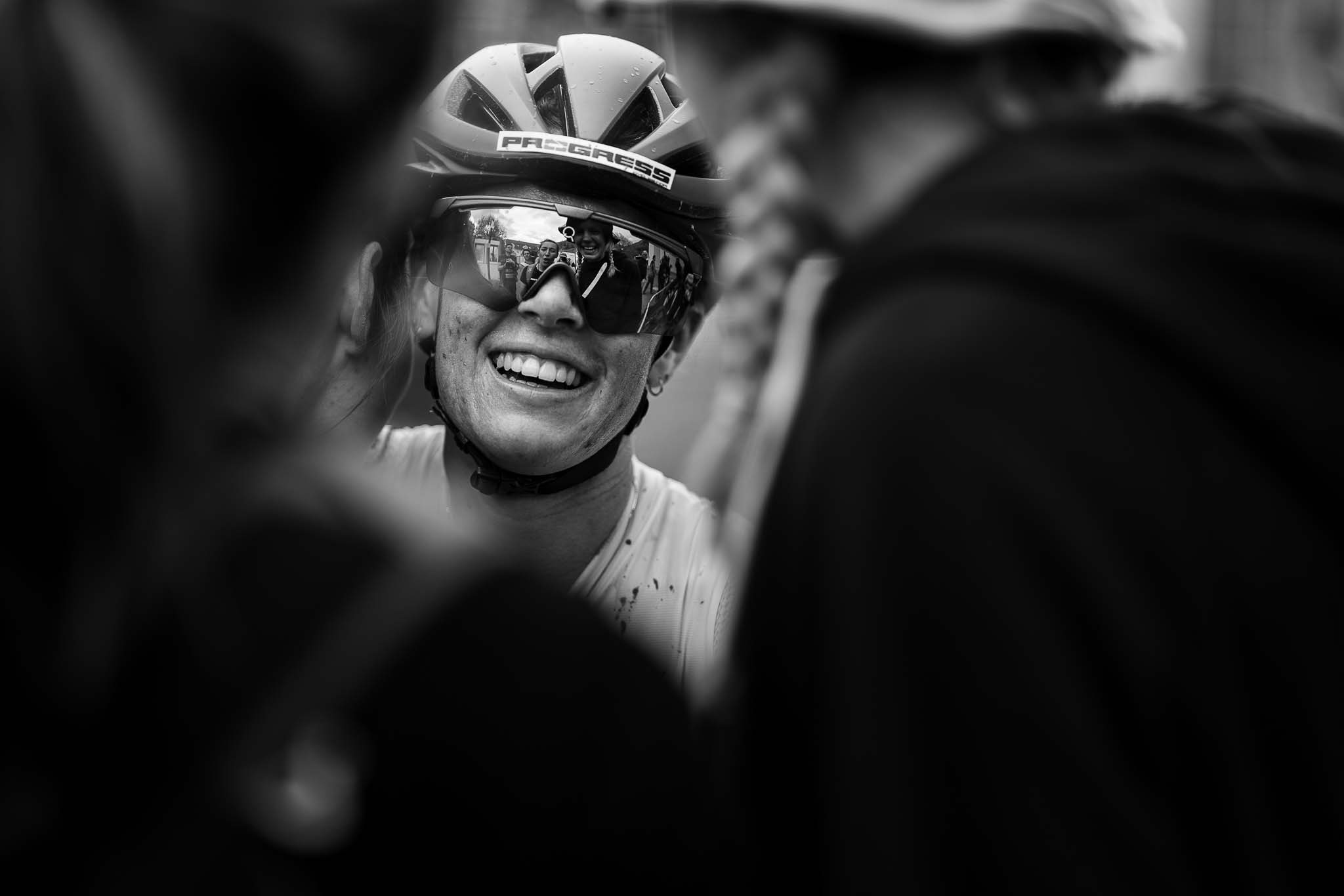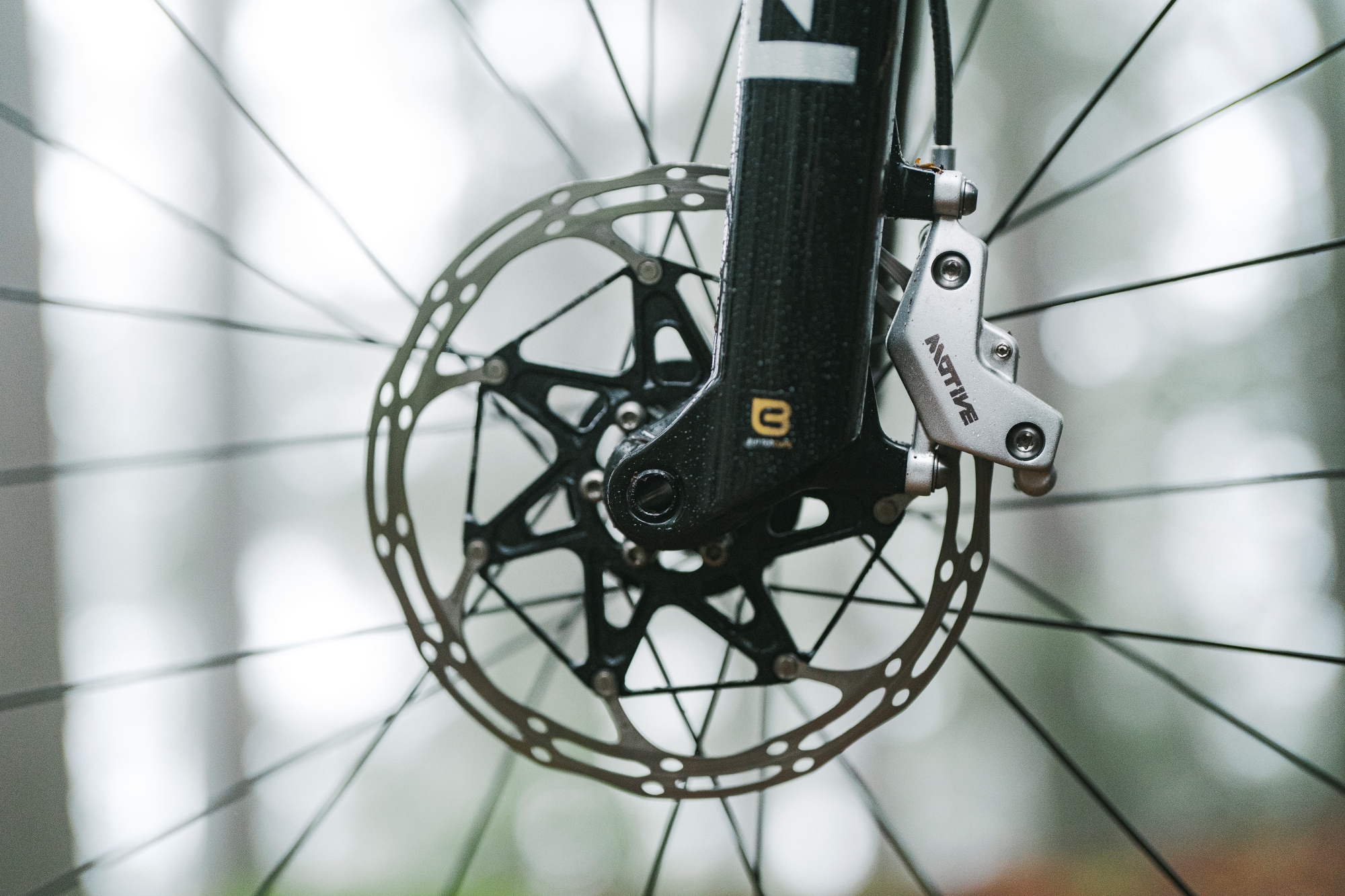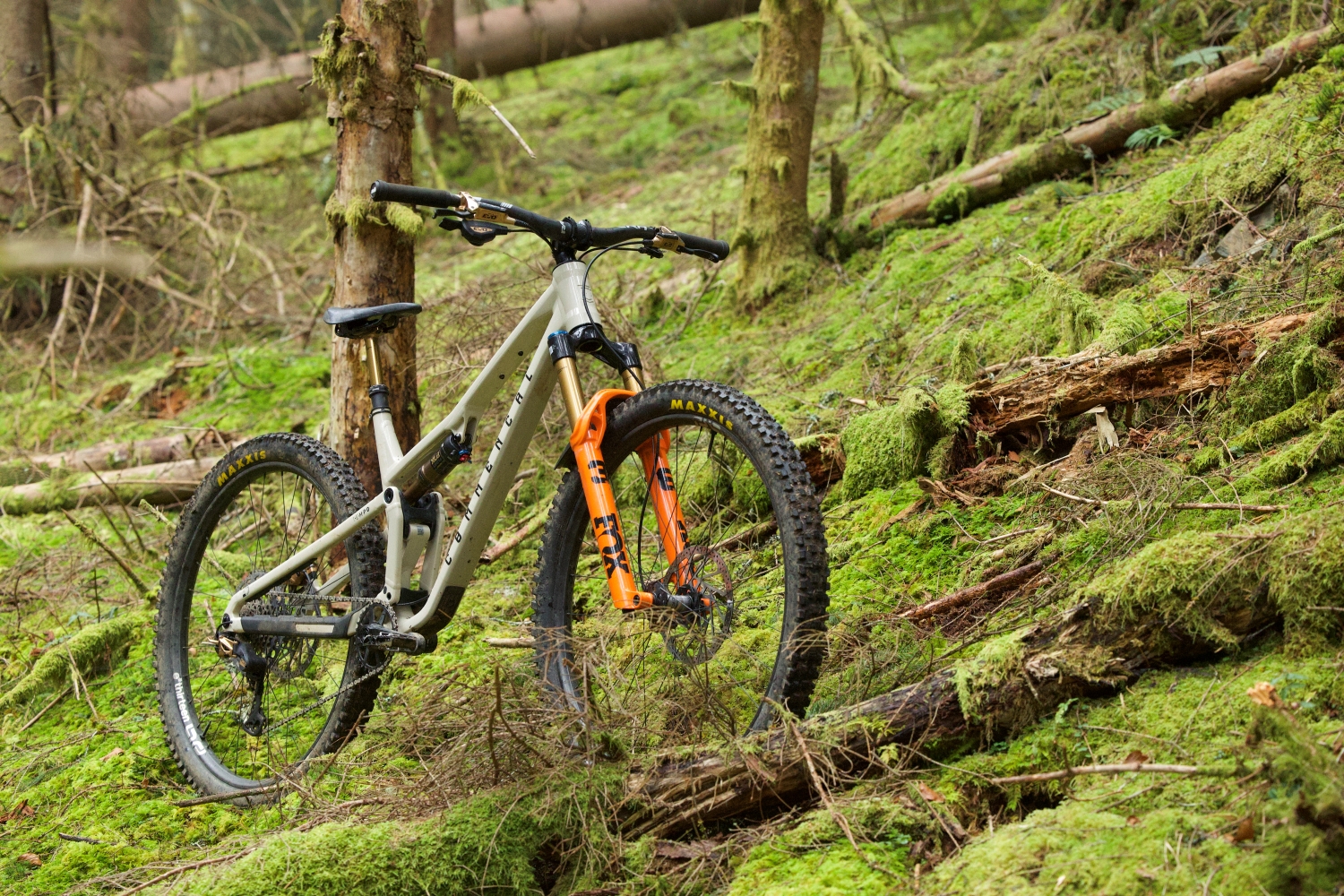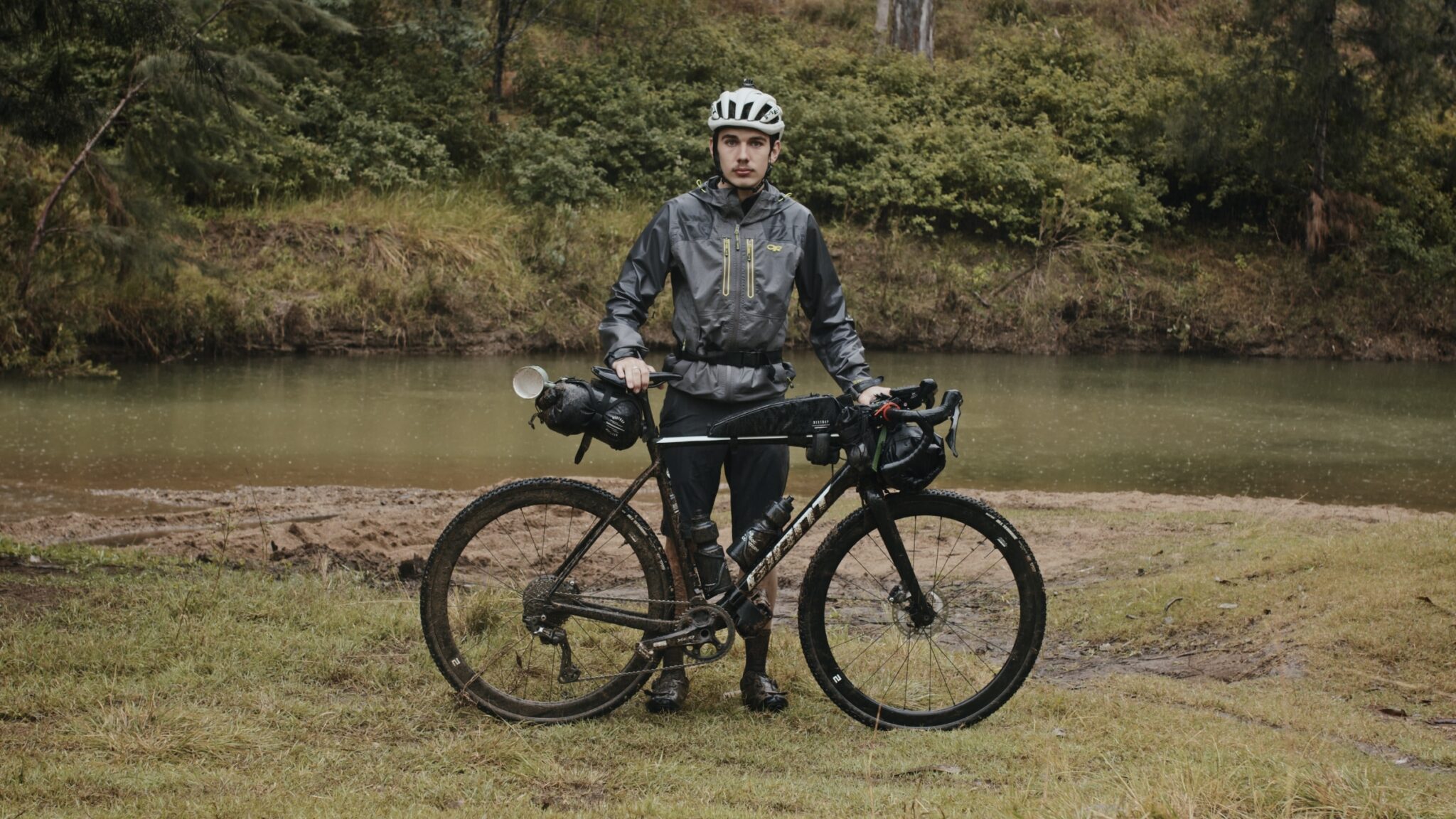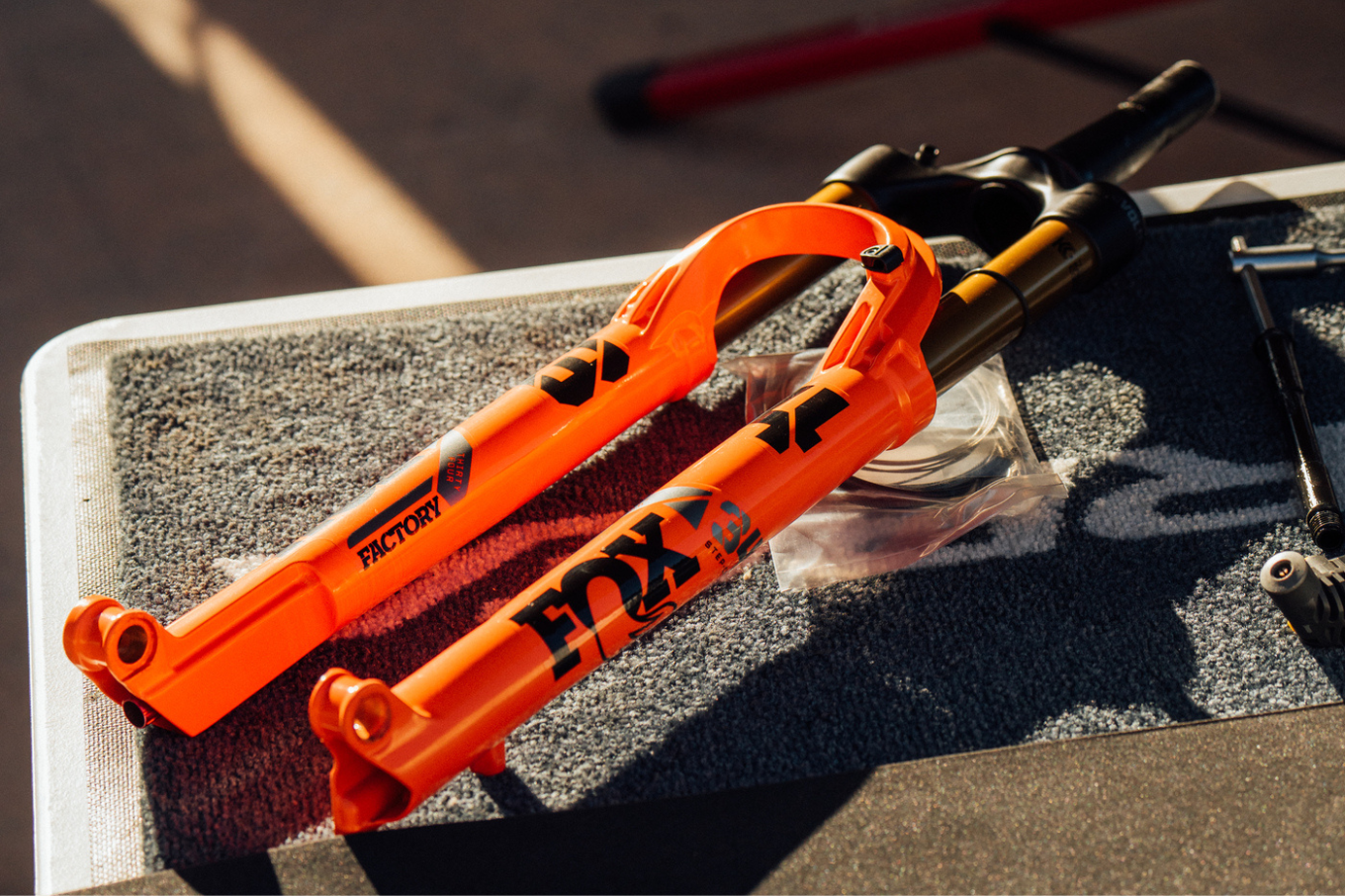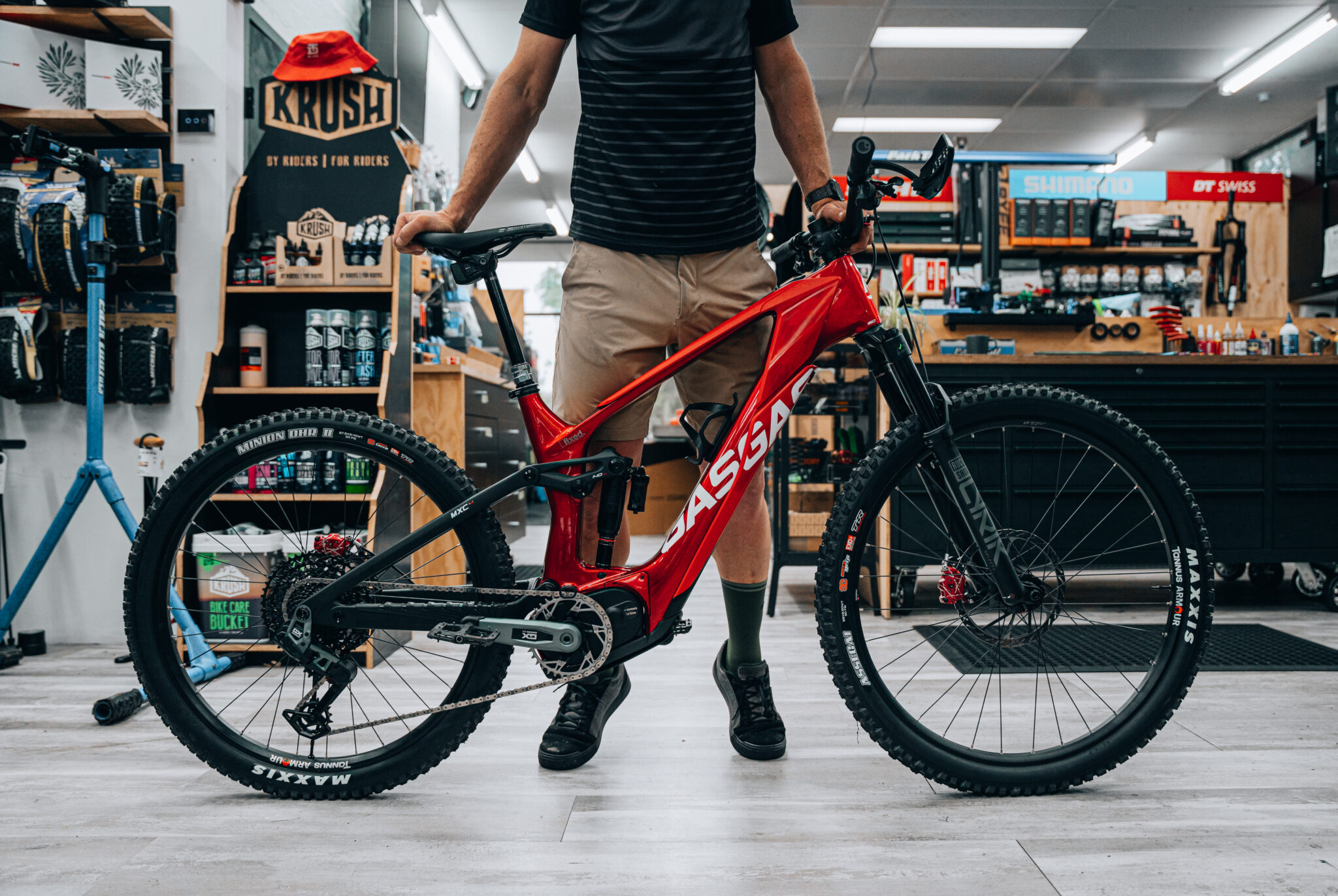Bec McConnell: On Success and Happiness
It’s sometimes debatable whether a rider makes the team, or a team makes the rider. But in the case of PMG and Bec McConnell, it’s an equal contribution and unique chemistry which has made them so prosperous.
Words: Georgina von Marburg
Photos: Piper Albrecht
While at home during the off-season, you’ll typically find Bec McConnell grinding up a remote fireroad on the outskirts of the ACT. Accompanied by some Mars Bars and mismatching water bottles, she will be slogging out long, unglamorous hours in the Aussie bush. While many of us envy the hours professional riders spend on their bikes, it takes an extraordinary level of commitment to maintain this year after year – rain, hail, or shine.
At her maiden World Cup, Bec finished around 60th place. At the time of my Zoom call with her, she had won her first World Cup, at the opening round of the 2022 XCO World Cup in Brazil. By the time I had finished this article, she had won three consecutive World Cups and become the fifth woman ever to win both the XCC and XCO on the same weekend. I would be lying if I said there wasn’t a hint of pressure writing about our nation’s newest hero. Australians love an underdog, and Bec has a story befitting of this title.
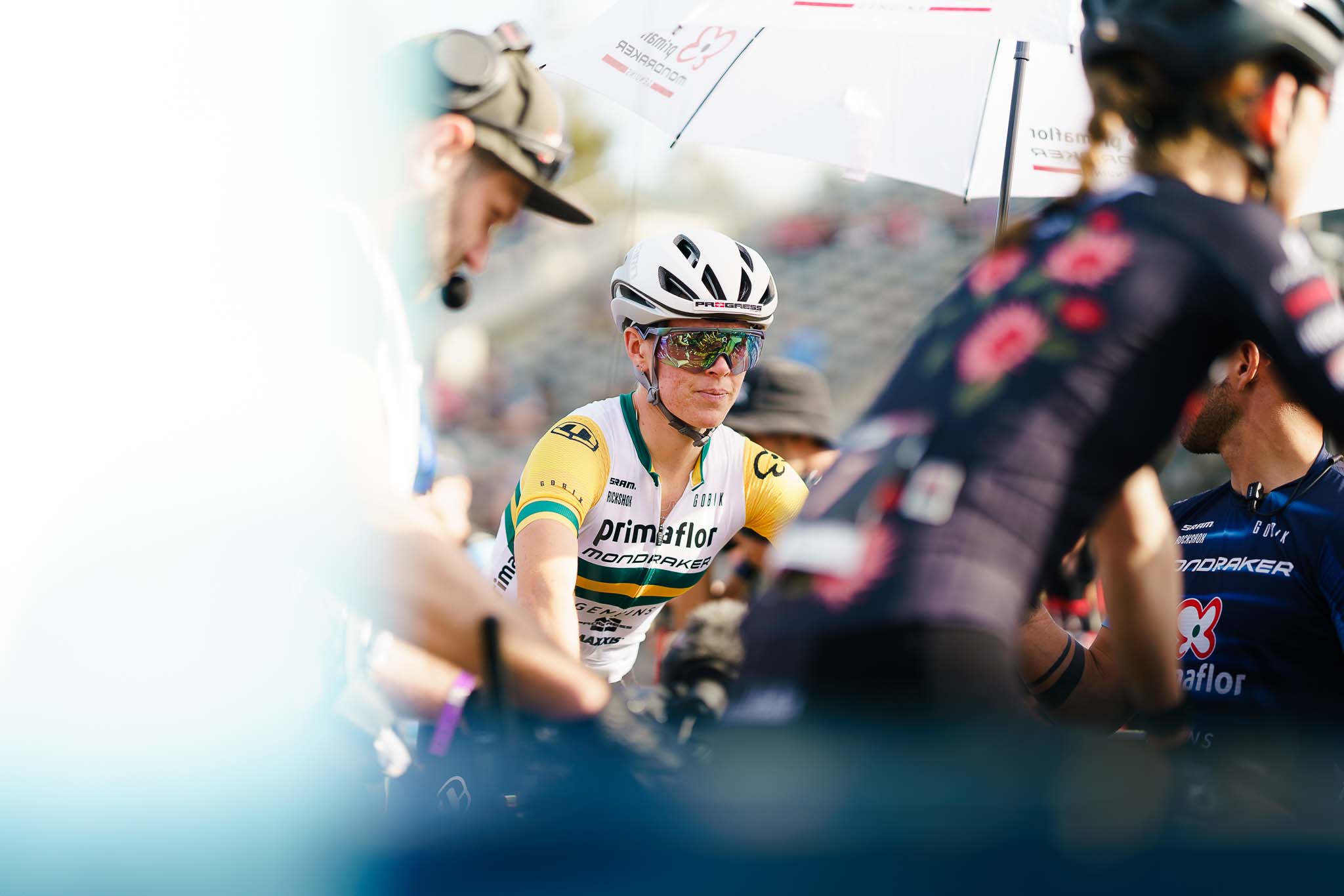
On the surface, one of Bec’s most obvious traits is her talent as a mountain biker. Watching her navigate steep and technical descents is essential viewing for any aspiring mountain biker, regardless of discipline. But beneath this is a foundation of fortitude strong enough to sustain the talent and make those hard decisions that come with having such a gift.
Like many great athletes, Bec was born with an innate passion for competitive sport. She grew up playing hockey and running cross-country at a national level, alongside mountain biking. As the other sports dropped away at the age of fifteen, mountain biking became the central pursuit for Bec. However, a common theme throughout Bec’s career is her natural ability to keep a balanced lifestyle amidst everything. “I wasn’t overly focused on my studies, but I wasn’t overly focused on riding either. In high-school there were other guys in the elite sports programmes, and I was never in any of that… I just flew under the radar and trained after school.”
Weekend trips to mountain bike races are among her fondest memories, but they were also a proving ground due to the lack of girls competing at the time. “I was usually the only girl and sometimes I would race the state rounds with the boys because there were no girls to race with.” To this day, Bec still races local events in the men’s ranks, though this says more about her sheer power than a lack of other girls.
While establishing herself as a junior, Bec was cautiously nurtured by her parents and brother (fellow elite mountain biker, Ben Henderson). “My parents were so focused on keeping a lid on me,” she laughs. “They didn’t want to burn me out, and they didn’t want me to get an ego or think I was good.” The tactic seems to have worked in some respects, given Bec is known as one of the most down-to-earth riders on the professional circuit.
After growing up on the national series and local dirt crits, Bec raced her first Junior World Championships in 2008 in Italy. There was no Red Bull TV back then, amplifying the significant adjustment of expectations for new comers. “I didn’t know there was this big wide world of mountain bike World Cups… I finished 21st from memory and people actually thought I was going to go quite a lot better,” she recalls. “You have no idea what to expect. I wasn’t disappointed at all, but people were like ‘Oh.’ Well yeah – it’s actually really hard. And the juniors in Europe are like little pros!”
Fast forward a few years and Bec has found herself in the ranks of professional athletes. She seems to have pursued mountain biking as a sport first and career second, the sole goal being the delivery of her personal best. “I was never like, ‘I’m going to be an athlete.’ I just did it because I liked it.” But of course, the career part could only come with a willingness to risk time and money for this relentless pursuit. “It’s not like you’ve just got to go [to Europe] and make it. You have to put in years and years of work to do it. It’s such a tough gig for the Aussies. I cannot emphasise that enough.”
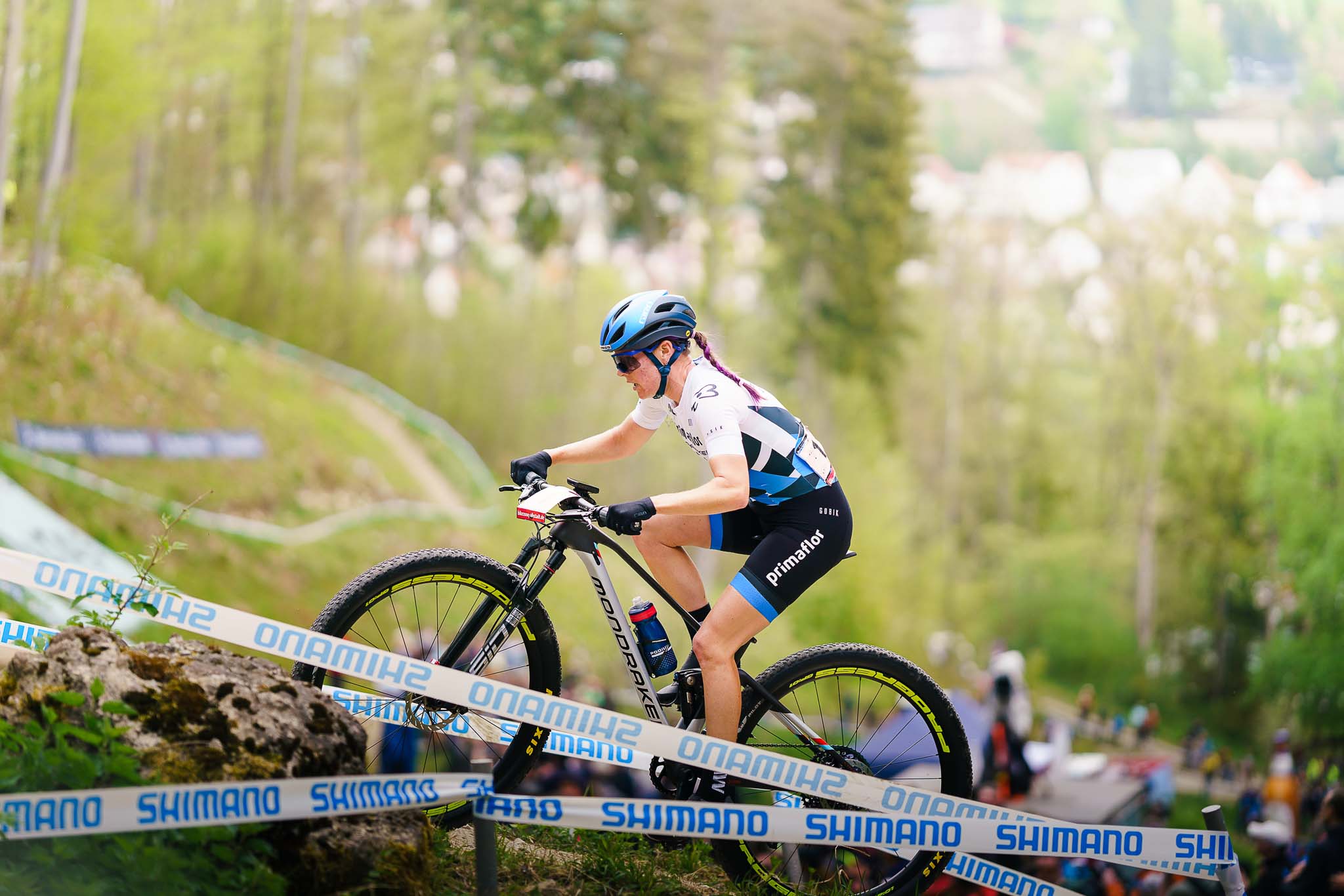
Bec and her then-partner Dan were eventually picked up by the well-oiled Trek Factory Racing Team where they spent several years. But in 2016, they were suddenly dropped from the team without warning. “I know that’s a moment where a lot of riders do ‘hang it up’, I can see how it gets in the Too Hard Basket when you’ve had it all done for you.” The lack of a new contract tasted particularly bitter after Bec had just achieved her first World Cup podium and was building on experience and form.
Yet despite this blow, the desire to perform only burned fiercer. “It lit a fire in me, I think. I don’t like to be driven by negativity, because I like to be self-motivated – but it was a bit like ‘No. I’m going to make this happen anyway.’”
The decision was made to continue as privateers, navigating the international circuit with a handful of personal sponsors, and a loyal friend acting as their physio. Taking into account travel, accommodation, and a mechanic, the venture was necessarily expensive. “We didn’t skimp on the support needed because we [thought] ‘if we want to get on another team, we have to be competitive, and we want to be competitive we can’t have less support than what the others have.’”
While the expenses that year were “completely unsustainable,” the privateer life afforded benefits which would be unheard of in large teams. “Every piece of equipment was equipment that we chose, we approached sponsors that we wanted, and the support staff were the people that we chose – in that way, it is really amazing.”
That year was superseded by signing with Spanish outfit PMG Racing Team (previously PMX Racing Team) in 2018. However, a fresh start only heralded fresh challenges, and the ensuing year became one of Bec’s toughest yet. During the opening team camp, she came down with what appeared to be the common cold. After the first two World Cups of the season, it was painfully obvious that Bec was not on form.
As the third race arrived, the situation was dire. “I can see pictures of myself [back then] and see that I wasn’t well,” she reflects. “I went there knowing that this was make or break for my season.” After the start loop, Bec had fallen to the last position. “Not even last, I couldn’t keep up with last! I trained faster than the speed that I was riding in the race.” But her deteriorating performance was manifested in more than purely physical ways. “I’m a high energy person… I’m silly around the house and dance in the kitchen, and always making jokes, and always laughing. And I lost that – totally.”
After failing to finish the third World Cup, Bec made a decision which would shock those on the outside: to quit the season and take 3 months off entirely. “It looks like you’re giving up, but I just knew that I couldn’t keep doing it. I knew I was better than that but I just couldn’t do anything about it.”
Those who know anything about sport will understand it takes great tenacity to push through poor form. But what we often forget is the humility, honesty, and courage it takes to stand down. “I think it’s one of my strengths – making those hard decisions. Because the easy thing [was] to keep going. I knew I’d have to go 10-20 steps back, but it’s the only way I was going to go forward.”
A blood test revealed Bec was suffering from the Epstein-Barr virus; but even before this diagnosis, her new team had the confidence to renew her contract despite the disastrous season. “It’s a super challenging thing to tell your team manager that you’re stopping before you’ve even made it half way through the season.” The re-signing substantiated PMG’s faith in Bec and kindled the authentic team dynamic from which her current success has blossomed. “It just gave me the freedom to do what was best for me, and I think that is one of the foundations for why I’m so good in the team.”
It’s sometimes debatable whether a rider makes the team, or a team makes the rider. But in the case of PMG and Bec McConnell, it’s an equal contribution and unique chemistry which has made them so prosperous. Over the last four years, the team has curated a group of genuinely enthused individuals, all with careers and lives outside the season. The staff don’t travel to World Cups because they have to, they go because they want to. “Everyone just loves their job, every single person in our team wants to be at the races.”

Bec’s face proceeds to light up as she talks about the tight-knit PMG outfit. “If you’re a bit down, they try so hard to make you happy again. They just want to see you happy… because you can have the world’s best support, but if you’re not happy then what’s the point?” But her emphasis on the team atmosphere is also matter of necessity, not a mere afterthought. “Maybe the team environment is so much more important to me than other riders because I don’t have a home environment to go back to.” Being an Australian means skipping back home between races is unrealistic, and months at a time must be spent overseas.
Another crucial arrow in Bec’s quiver this year is her new coach Josep Codinach. The change was initially met with apprehension, given she had already been steadily improving throughout last season. “I know what I like doing, and I know that what I was doing worked to get me racing at such a high level, so I was very reluctant to make many changes in my training.” And yet the changes have enabled Bec to reach her fullest potential. “I’ve actually only watched the race from Brazil once. I can just see in my performance some of those small changes and I can relate them to these [new] training sessions.” Blending drastic modification and steadfast consistency is difficult, but Bec is confident in the recipe. “In the beginning it was quite challenging, and we’re still always compromising. But it’s actually been a really good balance.”
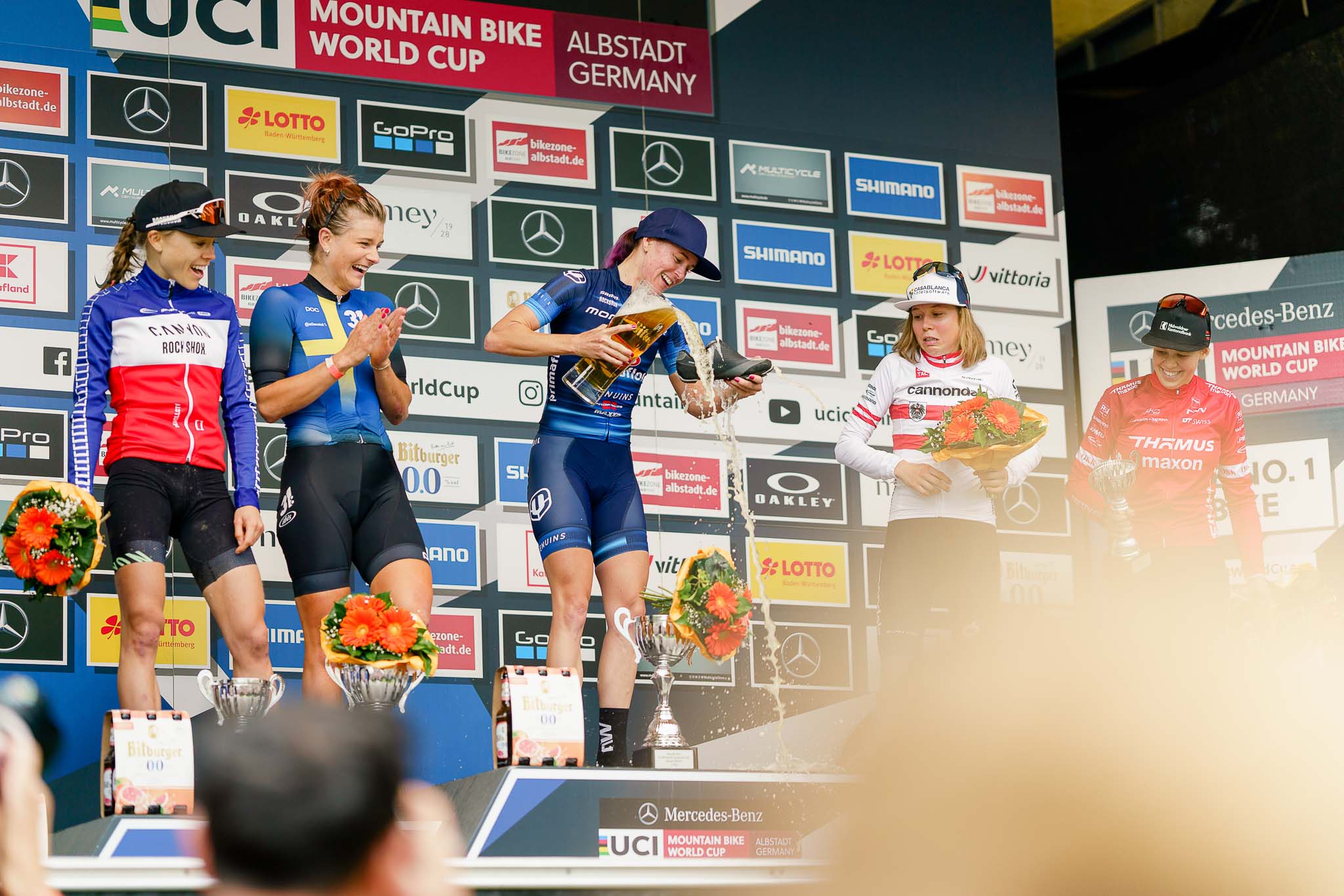
Regardless of what the future holds, Bec’s story will retain its power. Her understated and humble persona is contrasted by a ready willingness to make the tough calls when they inevitably arise. When tallying up the highs and lows of the 30-year old’s career, it’s clear that her ‘unprecedented’ success this year was not all that unprecedented. While doubters were overlooking her several years ago, Bec was quietly building the foundations for a happy – and victorious – career. “So now we know I can win a World Cup, but can I stay consistent?” she wonders. Given she was asking this post-Brazil, I believe that question has now been emphatically answered. But whether this winning streak continues or not, Bec McConnell’s place as a true Australian hero has been cemented and gilded in our hearts.

